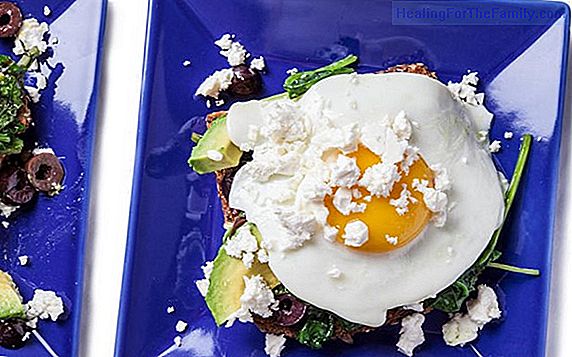Health
Thao Foundation . Useful guidelines for children to eat better These tips are born from a study of the environment during mealtime in childhood, an observational study that collects family interactions at the time of childhood food and parenting strategies and mothers when it comes to influencing th
Thao Foundation.Useful guidelines for children to eat better These tips are born from a study of the environment during mealtime in childhood, an observational study that collects family interactions at the time of childhood food and parenting strategies and mothers when it comes to influencing their children's food. The prevention of childhood obesity is a task of the whole society: health professionals, educators, the media ..., but above all the role of parents is fundamental when it comes to influencing day to day attitudes and behaviors of their children, especially during the first years of childhood, when the acquisition of habits is crucial.Children's health at the table: the 10 best tips
1- Eat every day as a family

Parents must do at least one of the main meals of the day with the children. The family meal is an important meeting point between children and their parents, vital to strengthen unity, family cohesion and to promote their health.
Lunch time is a great opportunity for family dialogue, to discuss the most important aspects of your day to day, the difficulties and achievements in school, the relationship with your friends etc. Surely there are many topics to talk about with children. It is also very positive that children participate and help from a young age to set the table and pick it up.
2- Learning to listen to your children
Parents should not only be aware of their children's behavior and manners. It is important to learn to listen to them with an attitude of attention and interest and trying to put yourself in their place, with respect for their rhythms, perceptions and sensations with food.
Children not only communicate with the word, but also with gestures, expressions, and body language. They want and need to be heard and understood.
3- Avoid distractions such as television or games during the meal
The meal time should become a space of time to encourage communication among all family members, to discuss the daily experiences of each and the most important , learn to feed in a correct way.
The discussions, as well as the presence of television or other electronic devices such as tablets, as well as toys during the meal, not only does not help the children eat well, but on the contrary, they increase the slowness and distraction during the meal.
4- Each child has their own rhythm
The 'slowness' of children when eating often worries parents. Children need their time to eat and respect their own rhythm, as a basic condition for food to become a positive learning of new flavors, and especially relational.
5- Share with your child the 'gastronomic' experience
It is advisable to talk with the children about the foods that are being consumed, the flavors, smells, textures, etc. to enrich the dynamics of the food. These comments represent an experience that helps the child to internalize their own discovery and sensory learning. Let us not forget that children learn from their elders and that imitation and identification with their parents helps them to cultivate their own tastes and preferences.
6- Adapt the size of the portions
Children should eat according to their age and their individual characteristics. It is important that the size of the portions is adequate. In the cases in which the children participate in deciding the quantity and the choice of some accompaniments, the food passes more peacefully and the children eat much better.
7- Interest in the child's relationship with food
Some parents believe that their children will eat better if they are promised a reward for watching television or playing with their favorite toy. In some cases these elements (television, toys ...) are used as threats. The insistence, coercion and pressure to eat or threaten do not get good results and the child ends up associating food with something obligatory and negative.
8- Encourage him, do not pressure him to eat
When the child stops eating or is distracted, do not scold him. Encourage him and encourage him to eat but without pressure, as a way to positively stimulate his behavior. The insistence with a tone of obligation does not give good results, it produces tension and creates a bad atmosphere during the meal. You can ask him to eat, tell him that he is doing very well, encourage him by saying that he is very good, that there is little left ... So it is easier to make family food a pleasant time and your son will eat better.
9- Dessert is part of the menu
Dessert is often used as a 'reward' or reward, as a bargaining element, with parental permission for children to choose it, and even in some cases as a threat. Dessert should not be a reward or a threat. On the contrary, the dessert that children like is an excellent way to learn sensory level and discovery of flavors and textures, which can then be extended to all foods and allow the child to discover their preferences .
10- Finish the meal in positive
When your child does not like a dish or a food, he accepts his attitude with tolerance and proposes a negotiation to finish the meal in positive. If you do not want to finish the dish, for example, you can propose to take two more spoonfuls, without finishing the dish, or take the fish but leave the salad, or eat one more piece of meat and leave the rest. And remember that every negotiation has to end with a positive assessment.












